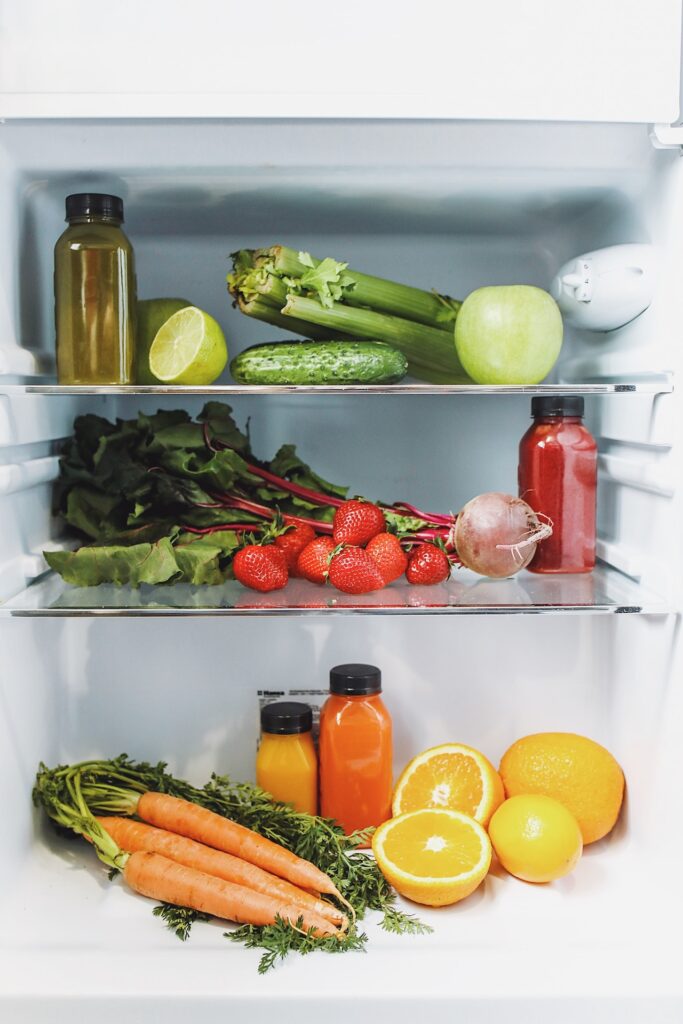Of all the places in your home, your fridge is one of the most important when it comes to maintaining a healthy and nutritious diet. By keeping a variety of nutritious foods in your fridge, you can ensure that you always have healthy options on hand for meals and snacks. Here are some nutritious foods that you should never lack in your fridge, along with some tips for how to incorporate them into your diet:

Fresh Vegetables:
Vegetables are some of the healthiest foods you can eat, packed with vitamins, minerals, and fiber. They are also low in calories and can help you feel full and satisfied. Keeping fresh vegetables in your fridge means that you’ll always have a healthy option to add to your meals. Try to keep a variety of vegetables on hand, such as leafy greens, cruciferous vegetables like broccoli and cauliflower, and colorful vegetables like bell peppers and carrots.
To incorporate more vegetables into your diet, try adding them to omelets, salads, stir-fries, and soups. Roasting vegetables in the oven is also a great way to bring out their natural flavors and make them more appealing.
Fresh Fruits:
Fruits are also packed with vitamins, minerals, and fiber, and they’re a great way to satisfy your sweet tooth without reaching for unhealthy snacks. Keeping fresh fruits in your fridge means that you’ll always have a healthy option to add to your meals or enjoy as a snack. Some of the best fruits to keep in your fridge include berries, apples, oranges, and grapes.
To incorporate more fruits into your diet, try adding them to smoothies, oatmeal, yogurt, or simply eating them as a snack.
Low-Fat Dairy:
Dairy products like milk, yogurt, and cheese are excellent sources of calcium and protein, which are essential for strong bones and muscles. However, dairy products can also be high in saturated fat, so it’s important to choose low-fat or fat-free options whenever possible.
To incorporate more dairy into your diet, try adding yogurt to smoothies, using low-fat milk in your morning cereal, or using low-fat cheese as a topping for salads and sandwiches.
Lean Protein:
Protein is essential for building and repairing muscle tissue, and it can also help you feel full and satisfied. Some of the best sources of lean protein to keep in your fridge include chicken, turkey, fish, tofu, and eggs.
To incorporate more lean protein into your diet, try adding grilled chicken or fish to salads, making a tofu stir-fry, or using hard-boiled eggs as a snack.
Whole Grains:
Whole grains are an excellent source of fiber, which can help keep you feeling full and satisfied. Some of the best whole grains to keep in your fridge include quinoa, brown rice, whole wheat bread, and oats.
To incorporate more whole grains into your diet, try using whole wheat bread for sandwiches, making overnight oats for breakfast, or adding quinoa to salads.
Healthy Fats:
Healthy fats, like those found in nuts, seeds, and avocado, are essential for maintaining healthy skin and hair, and they can also help keep your heart healthy. Keep a variety of nuts and seeds in your fridge for a quick and healthy snack, and add sliced avocado to salads and sandwiches.
To incorporate more healthy fats into your diet, try adding nuts and seeds to oatmeal or yogurt, using avocado as a topping for toast, or making a homemade trail mix with a variety of nuts and seeds.
By keeping these nutritious foods in your fridge, you’ll be able to maintain a healthy and balanced diet. Try to incorporate a variety of these foods into your meals and snacks each day to ensure that you’re getting all of the essential nutrients that your body needs.
